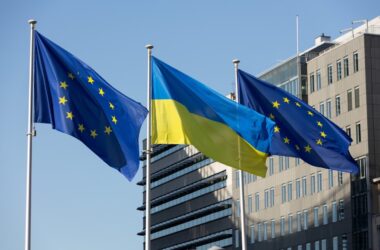Ghana, Africa’s largest gold producer, announced on Monday that it will prohibit foreigners from buying or trading artisanal gold within the country, effective May 1.
This new rule is part of the country’s broader efforts to regulate gold exports through the establishment of a new body, the Ghana Gold Board, also known as GoldBod.
According to a statement from GoldBod, beginning May 1, all gold transactions will require a license issued by the new regulatory body. Licenses previously granted by the Precious Minerals Marketing Co., which had marketed Ghana’s minerals, will no longer be valid.
The statement emphasized that, from next month, no entity will be allowed to purchase or trade gold in the country except for GoldBod. This move is aimed at maximizing Ghana’s revenue from gold exports. GoldBod will serve as the sole buyer, seller, assayer, and exporter of gold produced by licensed small-scale miners. Anyone caught dealing in gold without a license from GoldBod will face criminal charges.
Historically, local and foreign companies with export licenses were allowed to purchase and export gold from small-scale miners in Ghana. However, this new law will centralize gold trade under the control of GoldBod.
On March 29, Ghana’s Parliament passed the Gold Board bill, which was signed into law by President John Dramani Mahama on April 2. Prince Kwame Minkah, spokesman for GoldBod, told The Associated Press that “the trading activities of GoldBod is expected to culminate into building the needed reserves to enhance our forex and by extension deal with gold smuggling.”
Illegal gold mining, known locally as “galamsey,” has been a long-standing challenge in Ghana and was a significant issue during last year’s presidential election campaign. It has also become a major concern for voters, with protests and criticism directed at the outgoing government.
Although Ghana is the world’s sixth-largest gold producer, illegal mining has surged as many individuals seek jobs in the country’s struggling economy. This practice has led to environmental damage, including polluted rivers, despite government efforts to crack down on illegal mining activities.
Before Parliament passed the bill, Finance Minister Dr. Cassiel Ato Forson explained: “The GoldBod will ensure that Ghana harnesses the entire gold value chain — from extraction to refining, value addition, and marketing — both locally and internationally.”




